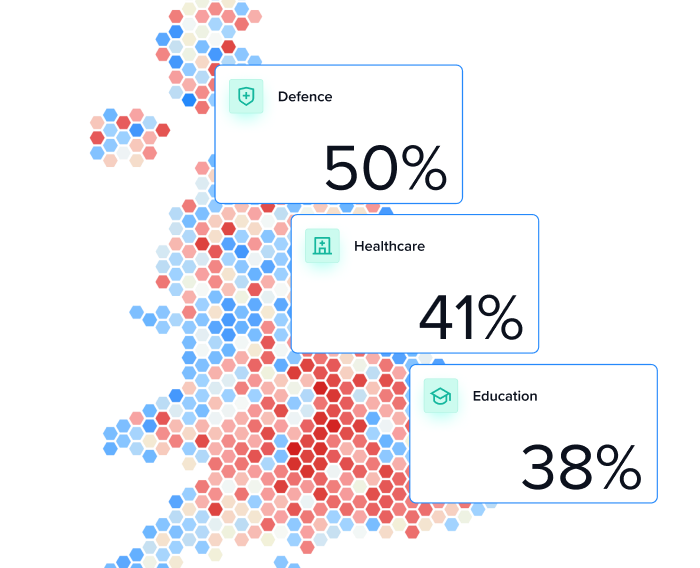Blog/In print
Voters are sceptical about spending more on defence
Yesterday’s VE Day anniversary was marked against a backdrop of geopolitical instability. The government’s response to this threat has been to commit itself to increasing defence spending to 2.5 per cent of GDP from April 2027, with an ambition to reach 3 per cent in the next parliament. But the scale and speed of disintegration in the world order has meant that there has not been time to prepare the public for spending increases in a way that can be sustained.
My firm’s polling for the London Defence Conference, taking place this week at King’s College London, shows only 35 per cent of the public are committed to increases in defence spending, with one in three adults in favour of the status quo. Already, 21 per cent of the public say they are fatigued by defence spending and want to see parts of the budget rerouted to voter priorities such as health and education. Support for higher defence spending leans right, with about 45 per cent of Tory and Reform voters supporting increases. But across the spectrum, at least 20 per cent of every party’s voters, bar the Conservatives, supports a calamitous reduction in spending.
Our research indicated that only one in four voters were willing to accept any waste on defence spending, suggesting a shallow coalition of support for increases. Defence experts should learn from the lessons of the Green and overseas development lobbies, which drove large-scale shifts in public spending only to suffer a backlash once the costs began to bite.
We tested the argument “We need healthcare, not warfare. We should spend money on our NHS and other essential services, not on new weapons of war” and recorded that the public, by a margin of two to one, supported this.
There is an opening for the Greens in appealing to voters who are sceptical about defence. First, they are the only party to have an electoral coalition that is more in favour of defence cuts than increases. Second, pro-welfare cost of living messages will have potential resonance as public services continue to erode.
The “split on defence” potential is also there on the right: four in ten Reform voters believe we have sent too much aid and support to Ukraine. While Keir Starmer and Kemi Badenoch may be united on defence, the voters are not quite there.
The potential for a Reform and Green insurgency is plain. The local elections proved that the traditional parties are fighting for their political existence. Labour will have to make the case decisively if it is to persuade a sceptical public of the need for increased defence spending.
Article originally appeared in The Times.


